Five inclusive music groups, including the Young All Stars (led by Veronika Kinsky, Ines Pilz, and Eva Königer), Ohrenklang (led by Christoph Falschlunger), Polgar Inclusive Band, Classic All (led by Beate Hennenberg, Christoph Falschlunger, and Helga Neira Zugasty), and the All Stars Inclusive Band (led by Bernhard Lengauer and Marlene Ecker) were on the programme at the second-ever Fest der Inklusion [Celebration of Inclusion] on 25 June in the Joseph Haydn-Saal, which also featured an art exhibition by the social workshop Werd:Art of the organisation Jugend am Werk (headed by Elisabeth Kuntner) and a presentation of the book Inklusiv Musizieren. Praxis, Pädagogik, Ästhetik – am Beispiel der All Stars Inclusive Band Wien.
The proceeds from this event, totalling over one thousand Euros, were donated to the initiative Inclusion Europe in order to assist people with disabilities in Ukraine. Alongside this event series’ central concerns of functioning as a stage for inclusive initiatives and artists with disabilities, fostering exchange and new acquaintances among participants from various artistic fields, and creating more of a presence for the inclusive idea in society, we also thought it important to address the major problems of our times—by way of our donation and also by holding this celebration in a deliberately climate-friendly manner.
As the participants went through their sound checks, the anticipation and excitement were already quite palpable. Following such a long, difficult period that had often included only online, hybrid, or small group rehearsals, preparing for this evening had involved huge challenges for these inclusive bands. But finally being able to play for an audience once more, together with their entire groups, conjured up all the more elation in their faces.
It was with an inspiring performance that the Young All Stars Band opened this celebration. These children had the audience instantly captivated, making music with joy and great expressiveness. The magnificent ensemble playing of this large group of young people with their wide range of instruments made for convincing performances of their specially arranged songs and sound improvisations.
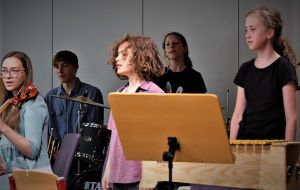
Ohrenklang, the second group to perform, wowed the audience with artful arrangements in which delicate, sensitively played solo passages alternated with harmonious ensemble sounds. Their songs were musical settings of prizewinning texts from Ohrenschmaus, a literature competition for people with cognitive disabilities.
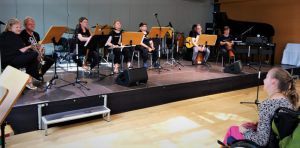 Compellingly vibrant pictures from the project Werd:Art, painted in vividly expressive colours, framed the stage and transformed this concert into a total work of art where visual and aural impressions came together to form a single whole.
Compellingly vibrant pictures from the project Werd:Art, painted in vividly expressive colours, framed the stage and transformed this concert into a total work of art where visual and aural impressions came together to form a single whole.
Next up was the Polgar Inclusive Band, which performed its songs—some of them composed by the band members themselves—with tons of energy. Here, the audience itself became part of the concert again and again. And both the enthusiasm for making music together and the band members’ individual concerns, such as with peace and a better environment, came across loud and clear in their songs.
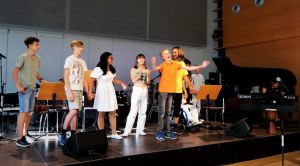
Between the performances, the audience enjoyed an exceptionally environmentally friendly buffet. With help from the initiative grüne mdw, this edition of the Fest der Inklusion was held in accordance with the criteria of “FAIRanstalten”—the University’s in-house seal of approval for events—with special attention paid to sustainability. The buffet thus included fruit from rescue boxes, bread with regional, organically produced spreads, vegetables directly from the farm shop of Vienna’s Bioschanze vegetable gardens, juices produced by Green Sheep from self-harvested plants and in an environmentally and socially conscious manner, and sweet desserts mixed up by the band members themselves and baked in a social workshop run by Jugend am Werk.
Following the impulsive performance by the Polgar Inclusive Band, the ensemble Classic All inspired the audience with refined, expressively moving sounds. Music-making with a great deal of gusto plus well-thought-out arrangements made this performance into a feast for the ears.
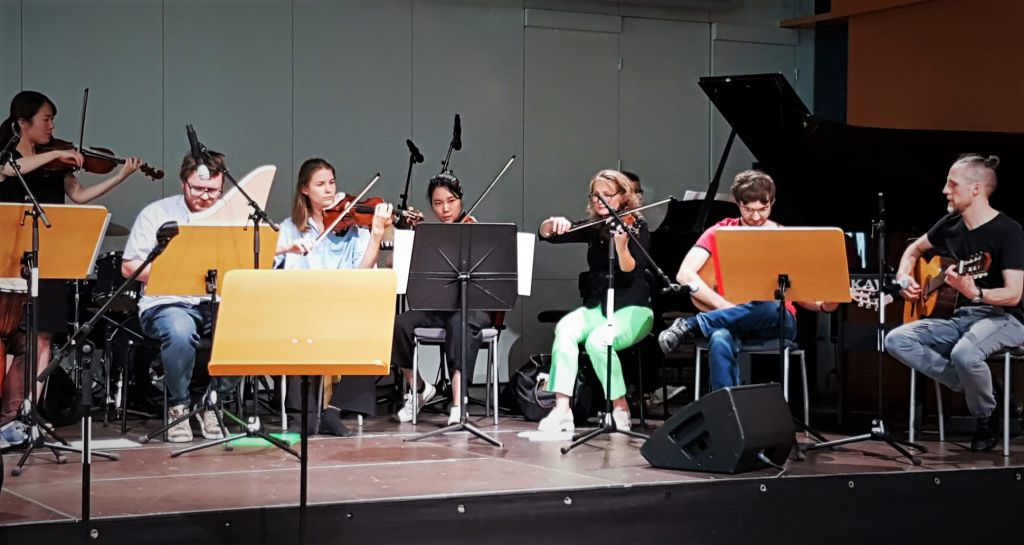
Between and sometimes also interwoven with the performances by the music groups, there was a reading of passages from the book Inklusiv musizieren – Praxis, Pädagogik, Ästhetik (am Beispiel der All Stars Inclusive Band Wien) [Inclusive Music-Making. Practice, Pedagogy, Aesthetics – as Realised with the All-Stars Inclusive Band in Vienna]. The theoretical considerations behind the wide diversity of questions that arise in connection with inclusive music-making were thus linked directly with real-life music-making practice, enabling the audience to hear and see how didactic considerations are applied in the actual practice of musical performing.
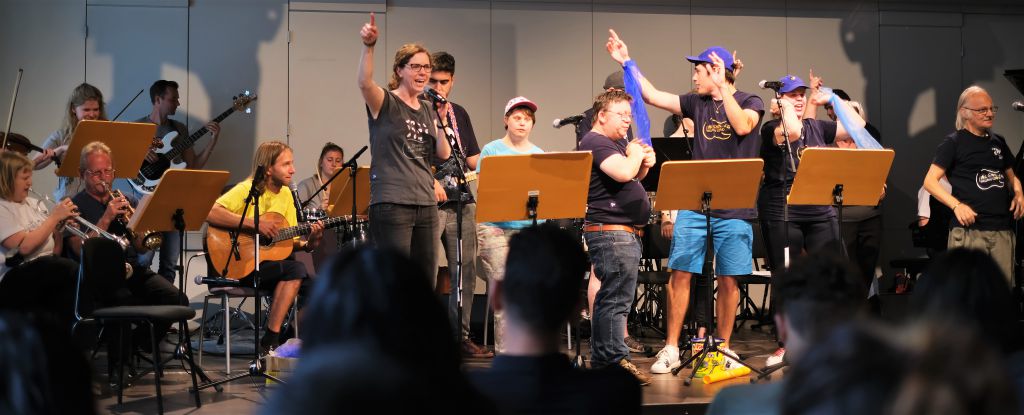
The final group to play was the All-Stars Inclusive Band itself. The audience was immediately swept up in the band’s music-making enthusiasm. The band members sang, danced, and clapped together with the audience, impressively demonstrating their musical abilities. It was a dynamic performance in which the All-Stars Inclusive Band unfurled the full sound of its many singers and instrumentalists.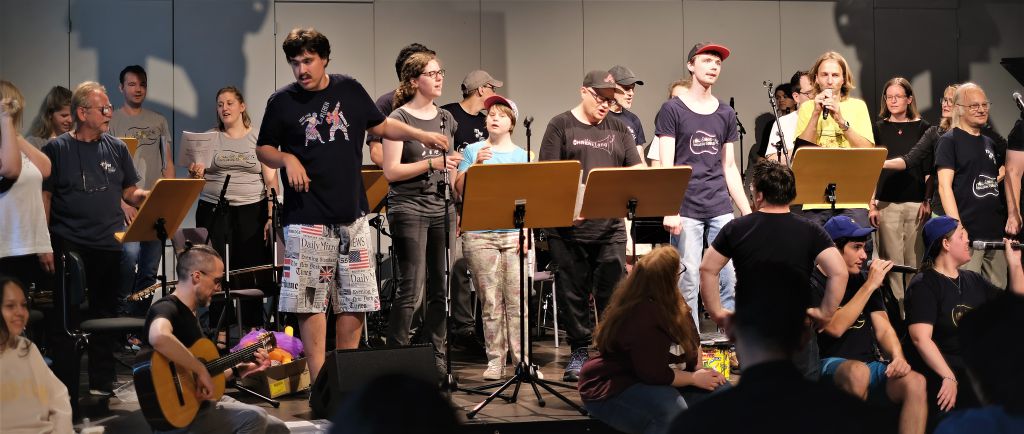
For the grand finale, all of the participating bands’ members were invited to come back onstage and sing John Lennon’s Imagine together with the audience. And it was with this message—that, though we may just be dreamers as individuals, we can effect huge change as a group—that this second Fest der Inklusion concluded.

